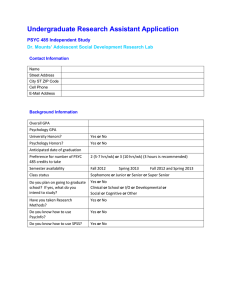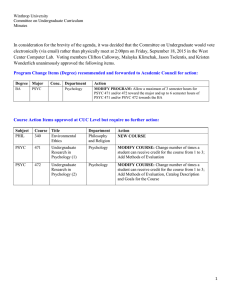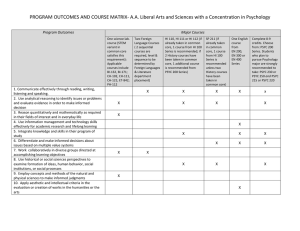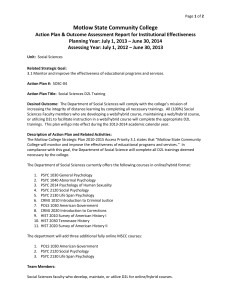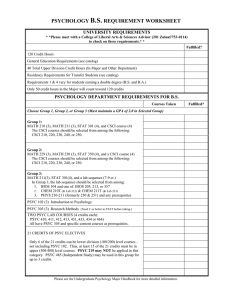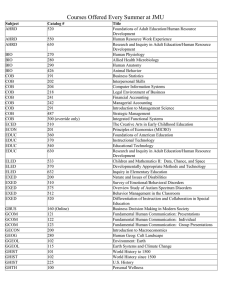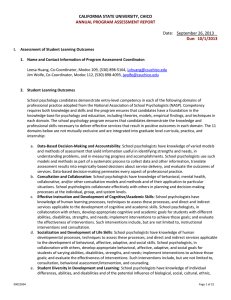Academic Affairs/Psychology Department
advertisement
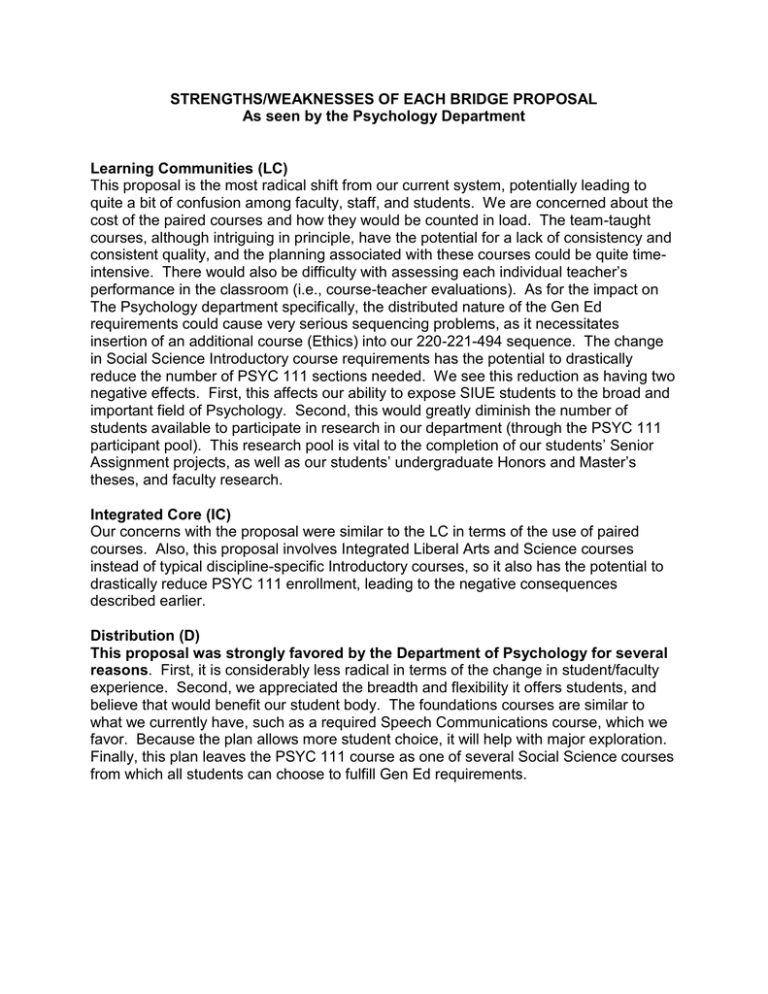
STRENGTHS/WEAKNESSES OF EACH BRIDGE PROPOSAL As seen by the Psychology Department Learning Communities (LC) This proposal is the most radical shift from our current system, potentially leading to quite a bit of confusion among faculty, staff, and students. We are concerned about the cost of the paired courses and how they would be counted in load. The team-taught courses, although intriguing in principle, have the potential for a lack of consistency and consistent quality, and the planning associated with these courses could be quite timeintensive. There would also be difficulty with assessing each individual teacher’s performance in the classroom (i.e., course-teacher evaluations). As for the impact on The Psychology department specifically, the distributed nature of the Gen Ed requirements could cause very serious sequencing problems, as it necessitates insertion of an additional course (Ethics) into our 220-221-494 sequence. The change in Social Science Introductory course requirements has the potential to drastically reduce the number of PSYC 111 sections needed. We see this reduction as having two negative effects. First, this affects our ability to expose SIUE students to the broad and important field of Psychology. Second, this would greatly diminish the number of students available to participate in research in our department (through the PSYC 111 participant pool). This research pool is vital to the completion of our students’ Senior Assignment projects, as well as our students’ undergraduate Honors and Master’s theses, and faculty research. Integrated Core (IC) Our concerns with the proposal were similar to the LC in terms of the use of paired courses. Also, this proposal involves Integrated Liberal Arts and Science courses instead of typical discipline-specific Introductory courses, so it also has the potential to drastically reduce PSYC 111 enrollment, leading to the negative consequences described earlier. Distribution (D) This proposal was strongly favored by the Department of Psychology for several reasons. First, it is considerably less radical in terms of the change in student/faculty experience. Second, we appreciated the breadth and flexibility it offers students, and believe that would benefit our student body. The foundations courses are similar to what we currently have, such as a required Speech Communications course, which we favor. Because the plan allows more student choice, it will help with major exploration. Finally, this plan leaves the PSYC 111 course as one of several Social Science courses from which all students can choose to fulfill Gen Ed requirements.

